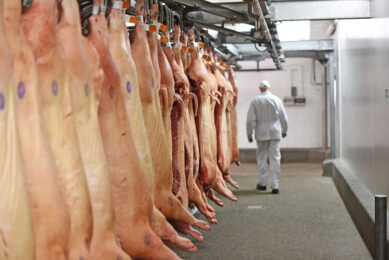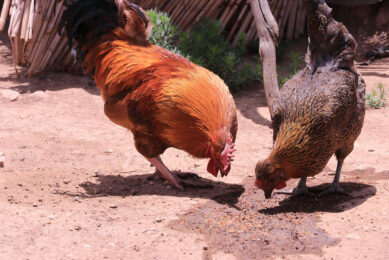Wanted: young feed professionals!

Last week, I attended the AFIA Liquid Feed Symposium in Austin, TX. Amongst the trade shows that I attend on an annual basis, Liquid Feed is my favorite.
Last week, I attended the AFIA Liquid Feed Symposium in Austin, TX. Amongst the trade shows that I attend on an annual basis, Liquid Feed is my favorite. The liquid feed industry is a small, but vibrant piece of the US animal feed industry. While the show was great, one trend was readily apparent: the quantity of grey hair is rapidly increasing. At 35, I was one of the youngest attendees at the conference.
Without a doubt, the feed industry is aging. While the demographics in some markets are younger than the United States, I think it is fair to say that the global feed industry is facing a shortage of young talent to replace managers looking to retire.
Age brings experience and wisdom to an industry; youth brings energy and vitality. As a fairly conservative industry, we have an established pecking order: senior managers with experience and wisdom impart the lessons they have learned to their youthful, energetic colleagues. Much of this comes from our agrarian roots, where fathers patiently instructed their sons in the business and practice of farming until they themselves became grandfathers.
As I mature in our industry, I see fewer and fewer younger people choose the animal feed industry as a career. I think we have missed this trend, as we have been focused in the last 10 years on trimming costs amid a landscape of tight margins.
My biggest fear is that we are creating an experience gap that will be difficult to fill. As our senior managers and employees retire, they take valuable experience and knowledge with them; if we don’t have young people to fill the void, that experience and knowledge may be lost forever.
While I don’t have all the answers to this looming problem, I would like to present a couple of solutions. Traditionally, our industry organizations have primarily functioned as lobbying organizations. Maybe we should ask our industry organizations to increase their outreach and public relations role. I would bet that most university students today have no idea of the breadth and scope of the global animal feed industry.
We should also encourage the development of a forum for industry education and training. Our colleagues in the animal nutrition field have numerous professional organizations, journals, and accrediting organs that promote the open transfer of ideas and solutions. Feed millers do not have this type of professional forum, and yet our knowledge and experience are what brings the nutritional ideas and concepts to the marketplace.
It would be sad if much of our collective knowledge and experience were lost to the rapidly developing age gap. However, if we address this issue now, we can develop tools and strategies to not only attract, but retain young, vibrant talent to our rapidly aging industry.
Join 26,000+ subscribers
Subscribe to our newsletter to stay updated about all the need-to-know content in the feed sector, three times a week. Beheer
Beheer









 WP Admin
WP Admin  Bewerk bericht
Bewerk bericht